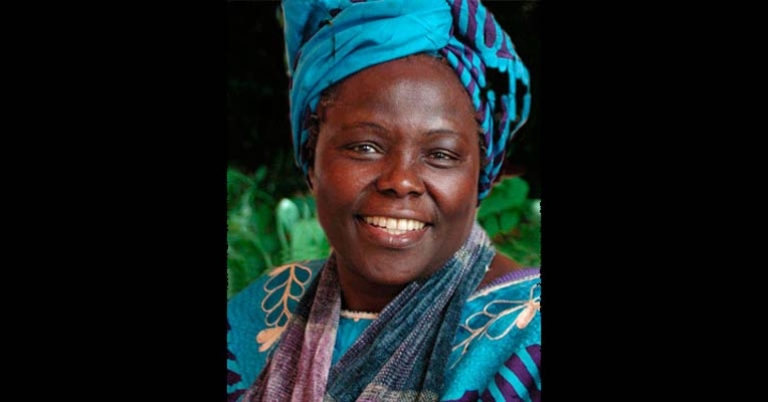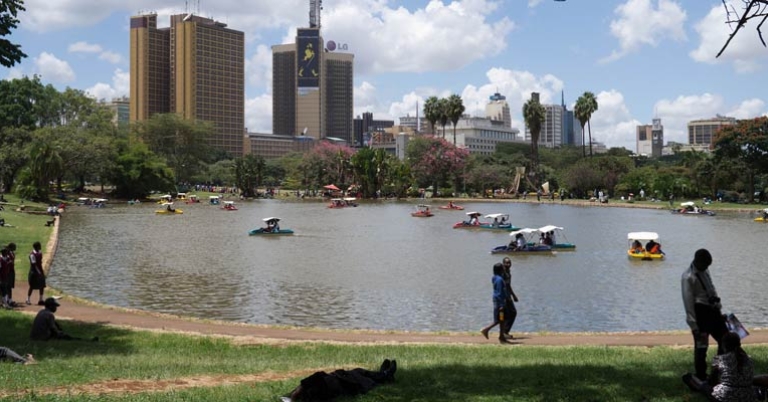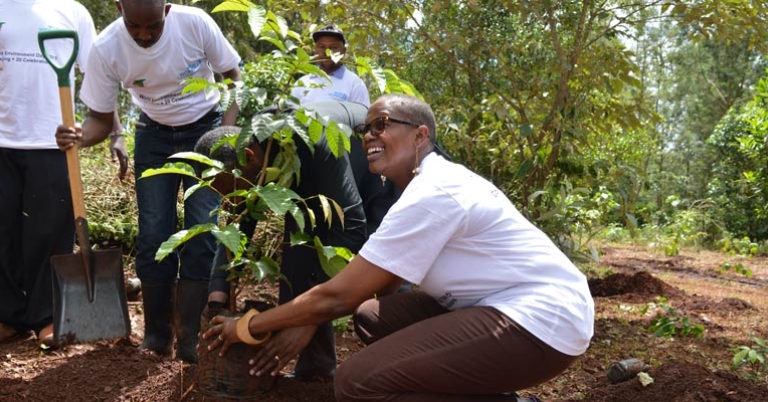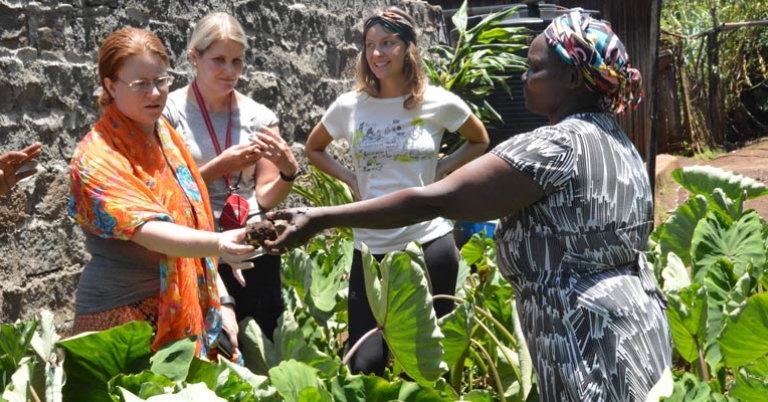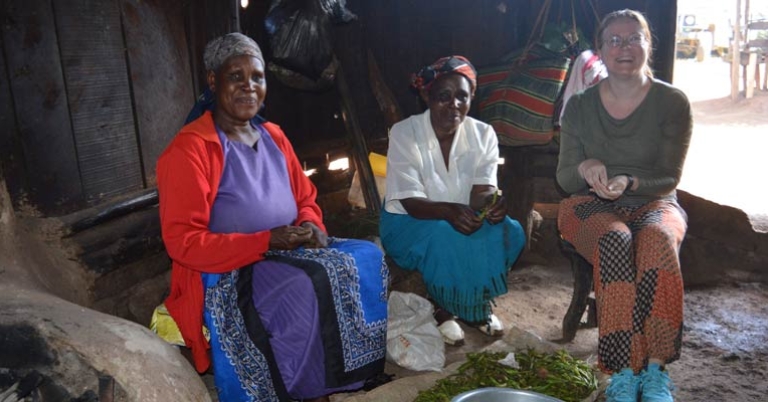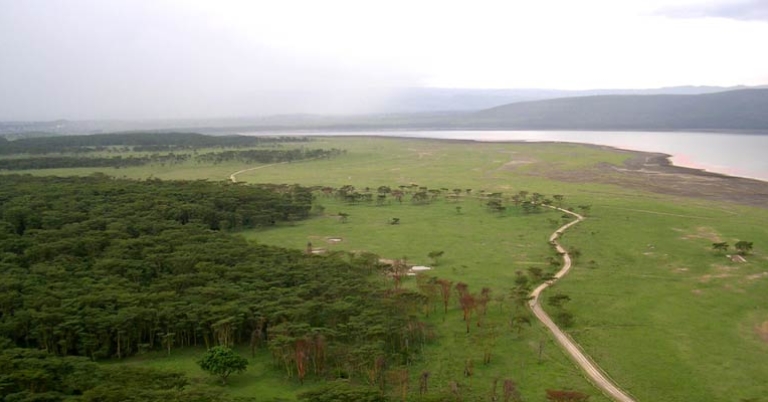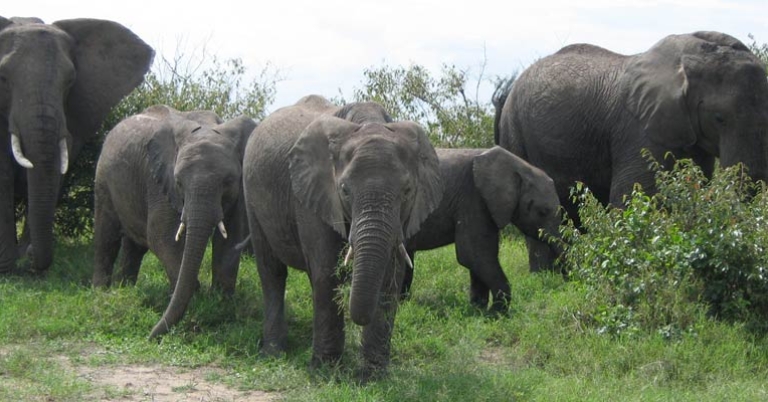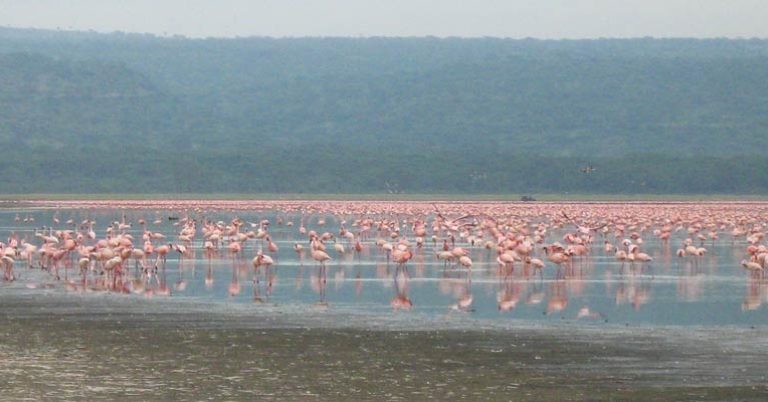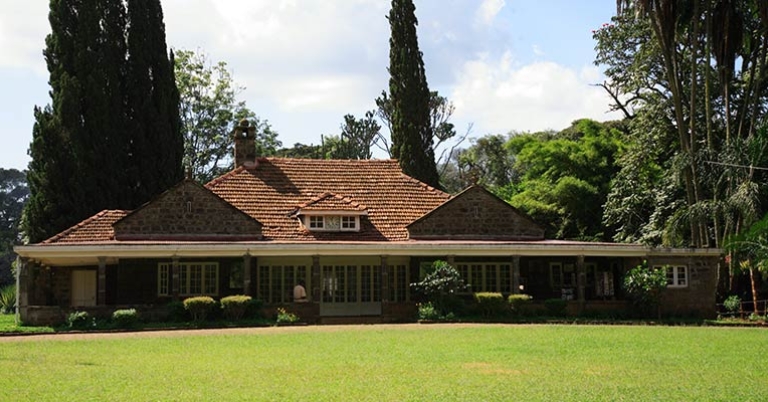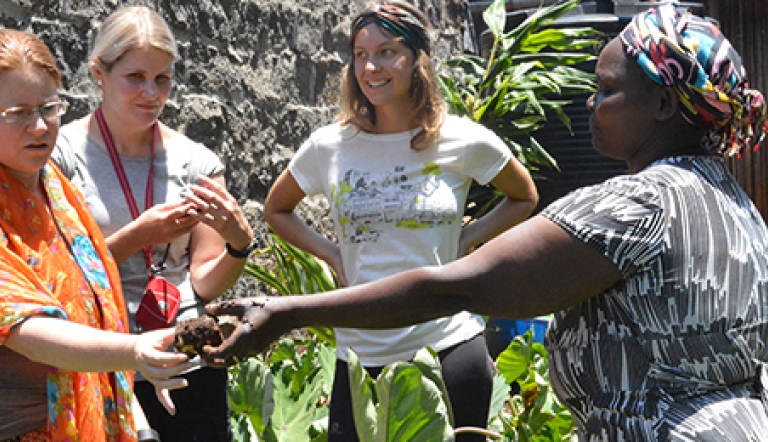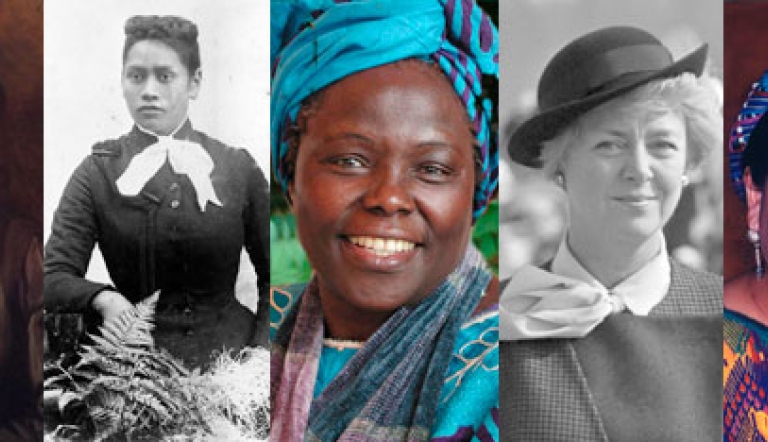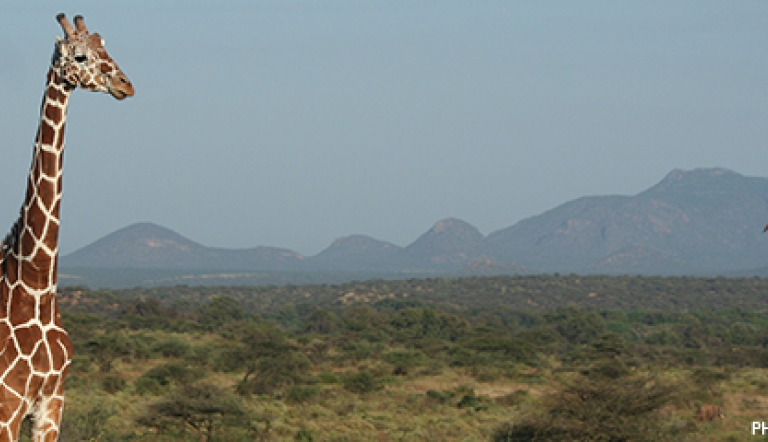Kenya | Exploring the Legacy of Wangari Maathai, 2004 Nobel Peace Laureate
About this trip


 Born in Kenya in 1940, Wangari Maathai represents a series of firsts: she was the first East African and Central African woman to earn a doctorate degree, the first female university professor in Kenya, and the first African woman and first environmentalist to win the Nobel Peace Prize. She advocated for democracy in Kenya, fought on behalf of women’s rights, and pushed environmental issues to the forefront of Kenyan society. Integrating these pursuits, Maathai founded the Green Belt Movement in 1977, which synthesized the issues affecting poor and rural Kenya and created a blueprint for environmental initiatives today. Although Professor Maathai passed away in 2011, her influence lives on in the current work of the Wangari Maathai Foundation and the Wangari Maathai Institute and in the countless environmental initiatives she inspired. Follow in the footsteps of this trailblazing leader for a closer look at her inspiring legacy.
Born in Kenya in 1940, Wangari Maathai represents a series of firsts: she was the first East African and Central African woman to earn a doctorate degree, the first female university professor in Kenya, and the first African woman and first environmentalist to win the Nobel Peace Prize. She advocated for democracy in Kenya, fought on behalf of women’s rights, and pushed environmental issues to the forefront of Kenyan society. Integrating these pursuits, Maathai founded the Green Belt Movement in 1977, which synthesized the issues affecting poor and rural Kenya and created a blueprint for environmental initiatives today. Although Professor Maathai passed away in 2011, her influence lives on in the current work of the Wangari Maathai Foundation and the Wangari Maathai Institute and in the countless environmental initiatives she inspired. Follow in the footsteps of this trailblazing leader for a closer look at her inspiring legacy.
OPTIONAL POST-TRIP EXTENSION: Continue your Africa experience with an optional post-trip wildlife and culture safari experience in Tanzania, June 30 - July 7, 2022.
Highlights
- Explore Wangari Maathai’s enduring legacy, courage, vision, and persistence.
- Gain an in-depth understanding of the Green Belt Movement and how they are carrying on Maathai’s vision to empower communities and conserve the environment.
- Visit the Wangari Maathai Institute for Peace and Environmental Studies.
- Visit Ihithe, where Maathai was born, and view the landscape that impacted her throughout her life.
- Join Nyeri Green Belt Movement community members in their homes and learn firsthand about a day in their lives as they work to improve their livelihoods while protecting the environment.
- Enjoy an amazing wildlife safari experience in Nakuru National Park as well as Maasai Mara National Reserve. See lions, leopards, rhinoceros, and elephant in their habitat, the East African plains..
About your leader
 Allen Stenstrup
Allen Stenstrup
Allen Stenstrup retired in 2014 from his position as Director of Education Programs for the American Forest Foundation and Project Learning Tree. Al has worked in education for over 45 years—including teaching at both the middle school and university level, directing an environmental center, and conducting professional development workshops in different countries. He has always had an interest and admiration in the work and legacy of Wangari Maathai. He has written several educational pieces about her work and the programs she established.
In his “retirement,” Al continues to serve on the Board of Directors of the Green Schools National Network and the Children Are the Hope nonprofits. He also conducts education workshops in different regions of the world on a part-time basis. In 2017, he started a new adventure forming a small nonprofit organization, Our First Garden, Inc. The mission of the group is to support the building and operation of gardens and natural outdoor play areas on school grounds in developing countries.
“This journey will be a great opportunity to follow in the footsteps of a great leader. We will explore and learn about many aspects of her life. We will also see parts of Africa and its diverse flora and fauna. I am counting down the days.”
$5,575
Per person
About this price
Land cost only. Does not include round-trip airfare to and from destination.
Single room supplement $670
What makes us different
Peer exchange
Community service
Support conservation
Sustainable travel
Support local communities
Flight arrangements
Daily Itinerary
Print ItineraryNairobi
Nairobi
Nairobi
Nyeri
Nyeri
Nyeri
Nakuru
Nakuru
Maasai Mara
Maasai Mara
Maasai Mara
Nairobi
Pricing
Print Pricing$5,575
Per person
About this price
Land cost only. Does not include round-trip airfare to and from destination.
Single room supplement $670
What's Included
- Activities and meals as mentioned in itinerary
- Carbon Offset
- Full time guide for the duration of your program
- Non alcoholic beverage with meals
- Travel protection, post departure coverage, excludes trip cancellation
What's Not Included
- International airfare
- Items of personal nature
- Tips
- Trip cancellation coverage
Pricing Details
A $200 per person deposit and enrollment form is due to hold your space on this trip. This deposit is refundable 95 days prior to departure. Cancellations after this date are not refundable.
Please note: Your participation as a traveler indicates acceptance of Holbrook Travel’s Covid-19 protocols in place at time of travel.
Holbrook Travel strongly recommends the purchase of travel insurance for medical emergencies while traveling and to protect your investment. Please note the purchase of Cancel for Any Reason Coverage or to exclude pre-existing conditions with Trip Cancellation coverage may require policy purchase within 10-14 days of your initial deposit, depending upon the provider.
Single room supplement $670
Final payment due date: April 01, 2022
Travel Info
Print Travel InfoEntry & Exit Requirements
U.S. and Canadian citizens must have a valid passport to enter Kenya. Passports must be valid for at least six months after the date of entry.
A visa is required. The visa application and payment must be submitted online prior to travel. Visit www.ecitizen.go.ke to complete the visa application. Once you receive your approval via email, you must download and print the eVisa and carry it with you when you travel. Visas cannot be obtained upon arrival at the airport in Nairobi or via the Kenyan Embassy or consulates. The visa fee is $50 USD for a single-entry visa and $100 USD for a multiple-entry visa. These fees are subject to change at any time.
If you are not traveling with a U.S. passport, please check with the Kenyan Embassy for the requirements based on your nationality.
Health Information
IMMUNIZATIONS
The Centers for Disease Control recommends that all travelers be up to date on routine vaccinations such as measles-mumps-rubella (MMR) vaccine, diphtheria-pertussis-tetanus vaccine, varicella (chicken pox) vaccine, and your yearly flu shot before every trip.
There are no vaccinations required for entry into Kenya.
Some physicians recommend that travelers get hepatitis A and typhoid vaccines before visiting Kenya.
Yellow fever is a risk in certain parts of Kenya. The CDC recommends the yellow fever vaccine if you are traveling to these areas.
Meningitis can be a risk during the dry season (December-July). If you are traveling during these months, your physician may recommend a meningitis vaccine.
Please consult your physician for additional information and recommendations based on your individual circumstances.
MALARIA
The CDC warns that travelers to East Africa may be at risk for exposure to malaria. Malaria is caused by a parasite found in Anopheles mosquitos, which are active from dusk until dawn. Prevention is twofold: the use of anti-malarial drugs and the prevention of insect bites. If you choose to use an anti-malarial drug, as recommended by the CDC, see your physician for a prescription.
SUN EXPOSURE
The effects of the sun can be damaging to the eyes and skin and spending time outdoors exposes you to the sun’s harmful ultraviolet (UV) rays, even on cloudy days. To protect yourself from the sun, use a broad spectrum sunscreen of at least SPF 15, protect skin with clothing, wear a wide-brimmed hat and sunglasses, and drink plenty of fluids.
Resources
Print ResourcesSuggested Packing List
To help you get ready for your expedition, below is a suggested packing list. You may find many of these items in our Gear Store, plus many clothing and accessory items.
CLOTHING
- Lightweight, casual clothes (see notes on clothing colors)
- Sweater and scarf (evenings can be cold, especially in desert areas and during May-August) - clothing that can be worn in layers is recommended
- 1-2 long skirts for women, no shorts above the knee
- Several nice outfits for dinner
- A lightweight wind-breaker
- Hat with ties
- Sleepwear
- Undergarments
- Bathing suit
- Walking or hiking shoes with thorn-proof soles
- Socks
- Sturdy sandals
MISCELLANEOUS
- Binoculars: expensive ones are not necessary. Bring lens cleaner
- Camera, extra memory cards, and batteries
- Flashlight or head lamp
- A small backpack for day walks
- Photocopies of passport and other travel documentation
- Prescription drugs and a copy of the prescription
- Reusable water bottle
- Travel alarm clock
- Pocket calculator
- Sunscreen
- Insect repellent with DEET
- Sunglasses
- Spare batteries
- Spare eyeglasses (it can be dusty so avoid contact lenses)
- Personal toiletries (shampoo/conditioner/lotion/deodorant – all non-fragrant)
- Soap and washcloth
- Toothbrush/toothpaste
- Non-perishable snacks
- Travel journal
Treating clothing with permethrin
Days before you leave home, you should consider spraying any clothing, socks, and shoes that will be worn in lowland, tropical sites with permethrin, an anti-parasite medication, to repel irritating pests and prevent the spread of disease. A recommended brand is Sawyer, which can be purchased from www.REI.com. Please note permethrin is highly toxic to cats and fish, and some aerosol products may be harmful to birds. Side effects may include minor itching, burning, or redness. You may want to use a laundry marker to label and keep track of which socks are permethrinized. Only one application per item is necessary; permethrin on treated clothes remains effective through several washings. Permethrin should NOT be applied directly to skin.
FIRST AID KIT
In addition to your personal toiletries, it is useful to pack a small medical kit which you can easily prepare. Helpful items include a pocketknife, cigarette lighter, Band-Aids, antihistamine (such as Benadryl), a pain-reliever, individually-wrapped moist towelettes, hand sanitizer, anti-diarrhea medicine, anti-fungal cream, antibiotic ointment, eye drops, and a small sewing kit. Probiotics are recommended if you have a weak stomach.
CLOTHING COLORS
Bring clothes in neutral or muted colors such as green, khaki, brown, or grey. We recommend that you avoid wearing bright colors or white as they can easily be spotted by animals. In addition, blue is particularly attractive to certain insects and should be avoided. For ladies, shorts are not generally accepted on streets in Africa.

Questions
Contact Lisa Palmese-Graubard at 800-451-7111 x339 or lisa@holbrooktravel.com.
